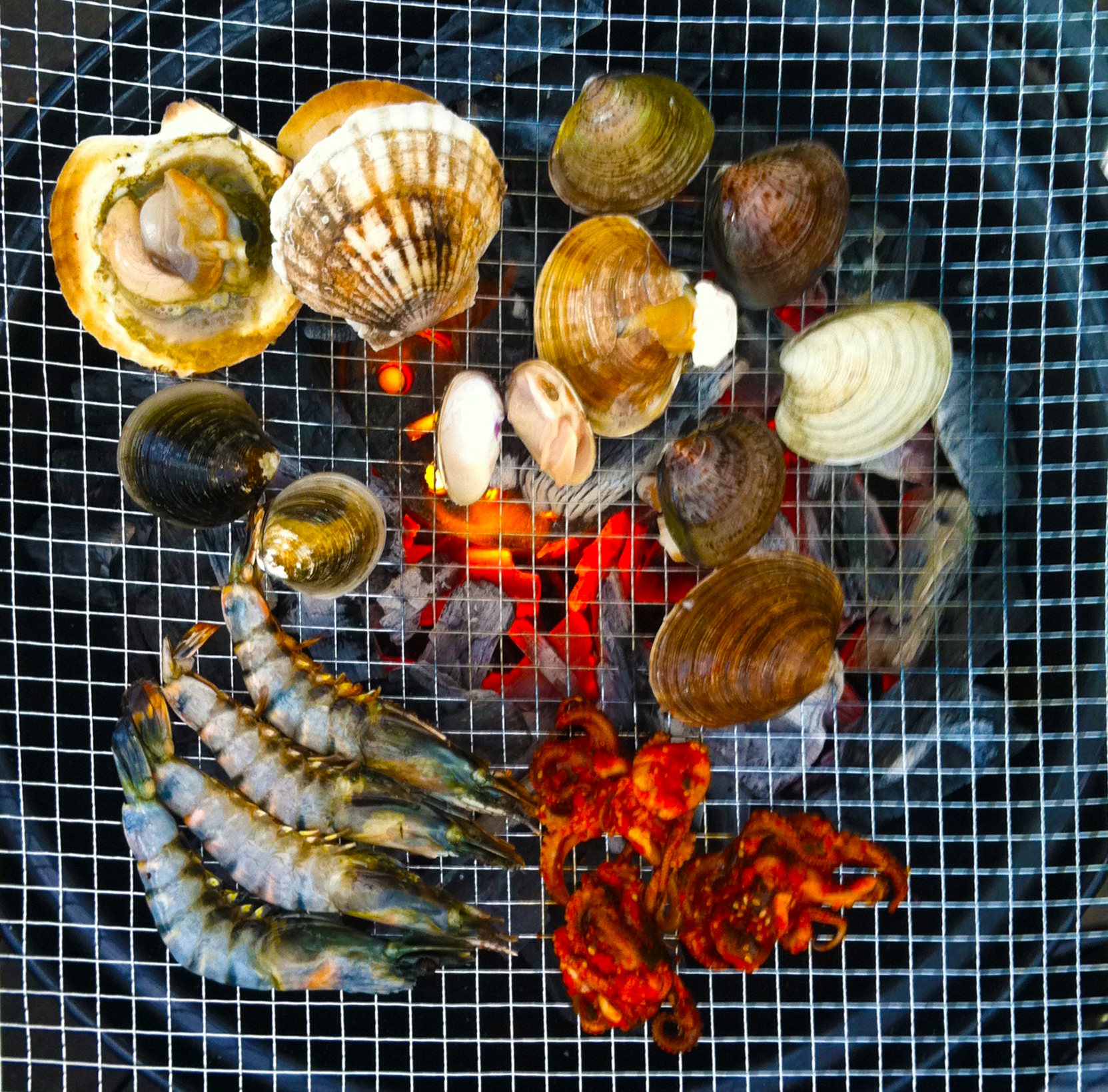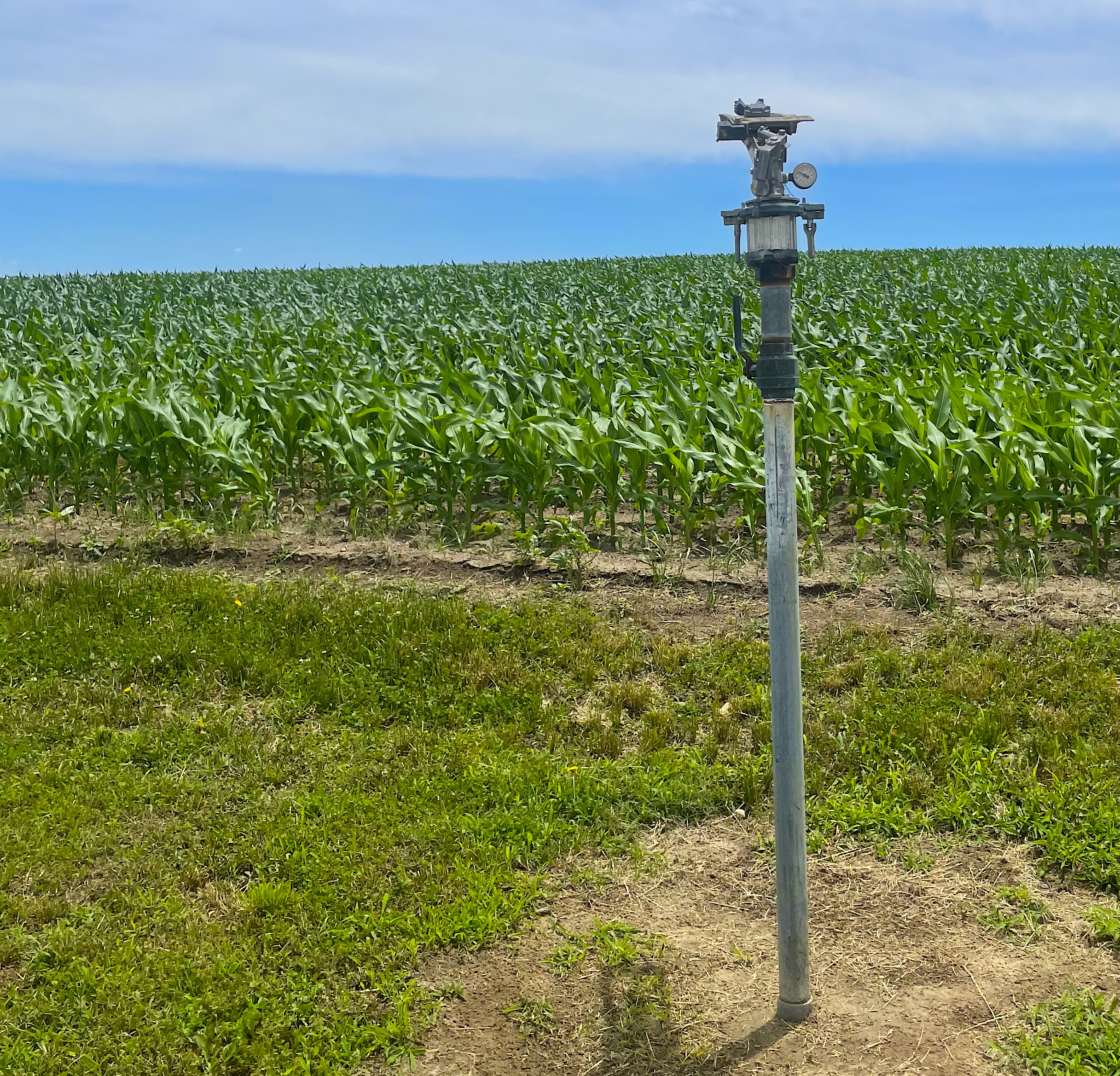LOCAL CATCH: Seafood: Fresh & Local

Freshness is fashionable these days, especially when it comes to seafood. And “fresh” is often synonymous with words like “local” and “seasonal” in consumers’ minds, as a group of fishermen and seafood dealers learned at the second annual North Carolina Seafood Marketing Workshop.
“Consumer preferences shift all the time and you need to keep pace with the changes,” says Scott Baker, fisheries specialist for North Carolina Sea Grant and an organizer of the workshop, which was held in Beaufort this winter.
“Consumers want it all — value, variety and convenience,” adds Sara Mirabilio, also a Sea Grant fisheries specialist.
What made the following four businesses successful is that they each hit on one or more of these desires, she says.
“In addition to providing a superbly fresh product, all of the businesses featured at the workshop have that strong convenience component in that they bring the seafood to customers,” she explains. “Success comes to seafood enterprises who define themselves by who they sell to and how they sell to them.”
Held for the first time in Wilmington last year, the workshop model focuses on helping North Carolina fishermen and seafood dealers better understand their customers and diversify marketing techniques.
This year’s event was a cooperative effort among North Carolina Sea Grant, the N.C. Division of Marine Fisheries, the N.C. Department of Agriculture and Consumer Services, and Carteret Catch. Funding was provided by the Cooperative State Research, Education and Extension Service, and administered by the Southern Risk Management Education Center.
In addition to a mix of short presentations about consumer preferences, seafood branding and free marketing resources, the 2009 workshop provided an opportunity for those in the industry to network with successful seafood entrepreneurs and learn from their business models.
Meet some of the enterprising individuals who have found a way to adjust their business operations to take advantage of changing consumer trends.
THE SHRIMP CONNECTION
Speaker: Landon Wilder
http://shrimpconnect.com
Every Thursday morning, Landon Wilder takes a little refrigerated truck from the Triad to Sneads Ferry and Topsail Island to pick up fresh local shrimp, fish and crabs from the docks. Upon his return, he sets up a yellow tent Friday through Sunday at various locations in the Greensboro and Winston-Salem areas. Recently, he expanded to include Saturday sales in the Lake Norman and Mooresville areas.
Wilder started The Shrimp Connection because he wanted out of the restaurant business where he’d worked most of his adult life. Several years ago, a retired friend in Sneads Ferry told him about a fellow regularly selling 15 to 20 coolers of shrimp outside the N.C. Farmer’s Market in Raleigh. Wilder immediately saw an opportunity to do something similar in the Piedmont Triad.
In his first two years, he sold head-on and headless shrimp along with scallops. But Wilder quickly realized he had to add fish to the mix to combat the influx of cheaper imported shrimp from Asia being offered in chain grocery stores. His fish sales are now double the shrimp sales. Today, the Shrimp Connection offers 18 to 20 items each week of “radically fresh” seafood from all over the world and usually two to three shrimp choices.
Customers can find Wilder’s sale locations on his Web site and place preorders, with the caveat that pricing and availability are not fixed until he pulls away from the docks. While someone else drives him back to the Piedmont, Wilder writes up a weekly e-mail newsletter, “Shrimpnotes” for 4,500 subscribers. The newsletter includes a price list and descriptions of what consumers can find under his tent that weekend.
In Their Own Words
“We only sell American shrimp because nothing else compares,” Wilder says. “The big deal in this process was finding honest dealers who would not try to pull the wool over my eyes. We went through several before we zeroed in on a couple.”
Wilder goes to the coast every week to buy seafood off the docks. He never allows anyone else to pick out seafood for his business.
“Our trip to the coast adds to our credibility as a retailer of unmatched quality in the Triad,” he says. In addition, “we never sell leftover seafood the next weekend and never have.” What he can’t sell by Monday, Wilder gives to Open Door Ministry in High Point for the homeless.
SEAVIEW CRAB COMPANY
Owners: The Romano Brothers, Nathan King
www.YourPriceSeafood.com
In 2004, two brothers, Joe and Sam Romano of Wilmington, began the Seaview Crab Company along with friend Nathan King. But they had a difficult time selling their basket crabs through traditional crab houses due to a glut in the market. They soon branched out and began selling their catch at various roadside stands. To increase their direct marketing efforts, the tech-sawy brothers collected e-mail addresses and mobile phone numbers from customers to text or e-mail them about future locations. Drawing more inspiration from E-Bay, they recently set up www.YourPriceSeafood.com, an auction site where customers can bid on a variety of seafood and have it shipped to their door, bypassing markups by middlemen.
Consumers benefit from more than just price, however. Because the site’s sellers must provide information about catch location, processing, country of origin and harvesting methods, consumers know exactly where their food came from — and learn more about local and seasonal fisheries.
Sellers benefit as well, the brothers say. The site helps open up markets by providing new means for fishermen and wholesalers to better sell their catch to new and inland markets.
In Their Own Words
“We got into commercial fishing because we enjoyed working on the water, but the difficulties of selling our catch forced us into the retail/wholesale market,” explains Joe Romano. “The more we immersed ourselves in catching and selling seafood, the more we realized how many problems exist in the North Carolina seafood infrastructure.”
Each new roadblock presented new logistical challenges, he says, but also an opportunity for growth. “Seaview Crab Company and YourPriceSeafood.com are two avenues that we continue to expand upon to confront these challenges both for ourselves and for the North Carolina seafood industry,” Romano says.
The business model for the company hinges on the fact that hard-working fishermen and educated consumers should be better linked, Romano explains. That way, fishermen are paid fairly for their hard work and knowledge, while consumers have better access to locally harvested, fresh fish.
“By providing in-depth source information, preparation tips amd even a fisheries science lesson, customers get value added to their purchase,” Romano says. “Our Web site, YourPriceSeafood.com, seeks to allow other fishermen, retailers and wholesalers to utilize this same sales style in an online format.”
SURFIN’ SEAFOOD
Speaker: Tina Montgomery
www.surfinseafood.com
A Seattle-based company started by two brothers, Surfin’ Seafood provides customers with the same type of high-quality seafood that the city’s best restaurants serve. And, better yet, the company delivers it straight to the customer’s door!
Market research shows that although there is a demand for fresh seafood, many consumers are hesitant to prepare it at home. Some are worried about whether the product is truly “fresh,” and others, especially younger Americans who do less cooking at home, find seafood preparation too intimidating.
Surfin’ Seafood flash freezes just-caught seafood at -10F, puts it in pre-packaged portions and provides recipes for purchased products — adding further convenience to their home delivery policy.
In Their Own Words
The motivation for creating Surfin’ Seafood was two-fold, according to co-founder Tina Montgomery.
“First, we wanted to make it easier for busy moms like us to have better access to high-quality seafood. Secondly, Jennifer Hanseler and I both had young kids in school full-time and were ready to launch a new career.”
Working the creation of the company around their family lives was a top priority for these ladies. So was making things as simple as possible for their customers.
“Our business model is easy for us and it’s easy for our customers.” Montgomery says their customers love how easy it is to place and pay for orders, as well as to get the fish and find out how to prepare it. Recipes are available on their Web site, www.surfinseafood.com, so customers know what to do with the fish once they have it.
“I think the simplicity of our business model attracts customers, but what retains our customers is the quality of our seafood — the quality of the seafood itself and the quality of the preparation.”
MIDCOAST FISHERMEN’S COOPERATIVE AND PORT CLYDE FRESH CATCH
Speaker: Laura Kramar
www.midcoastfishermen.org
In the chilly waters off Maine’s midcoast, in the Penobscot Bay region, 20 boats fish for more than just scallop in the winter and groundfish in the summer. The last fleet of groundfishermen between Portland, Maine and the Canadian border, members of Port Clyde’s Midcoast Fishermen’s Association also fish to foster strong ties between their community and those with a taste for fresh, locally caught seafood. They market their products under the name Port Clyde Fresh Catch (www.portclydefreshcatch.com).
In Their Own Words
The Port Clyde fishermen first came together in 2006 to share infrastructure and expenses such as wharfage and bookkeeping, explains Laura Kramar, marketing and branding coordinator for the Cooperative.
“As government regulations and market conditions made it increasingly difficult for them to make a living wage, they began thinking of new ways to market their seafood cooperatively,” she says.
And so came about Port Clyde Fresh Catch.
“People love Port Clyde Fresh Catch for many reasons.” First, it is the freshest wild-caught seafood available in their area, Kramar explains.
“Our seafood is caught using environmentally conscious fishing methods, including reduced bycatch, fossil fuel consumption, and habitat impact,” she continues. “And Port Clyde Fresh Catch is a fair trade product — the fishermen of the Midcoast Fishermen’s Cooperative receive a living wage for their seafood, allowing for the preservation of the fishing fleet and the Port Clyde community.”
This article was published in the Summer 2009 issue of Coastwatch.
For contact information and reprint requests, visit ncseagrant.ncsu.edu/coastwatch/contact/.


